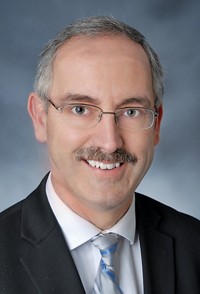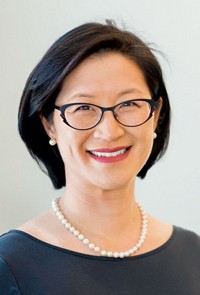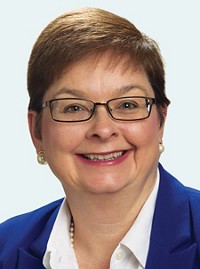Advertisement
Grab your lab coat. Let's get started
Welcome!
Welcome!
Create an account below to get 6 C&EN articles per month, receive newsletters and more - all free.
It seems this is your first time logging in online. Please enter the following information to continue.
As an ACS member you automatically get access to this site. All we need is few more details to create your reading experience.
Not you? Sign in with a different account.
Not you? Sign in with a different account.
ERROR 1
ERROR 1
ERROR 2
ERROR 2
ERROR 2
ERROR 2
ERROR 2
Password and Confirm password must match.
If you have an ACS member number, please enter it here so we can link this account to your membership. (optional)
ERROR 2
ACS values your privacy. By submitting your information, you are gaining access to C&EN and subscribing to our weekly newsletter. We use the information you provide to make your reading experience better, and we will never sell your data to third party members.
Programs
Shaping leaders at the ACS Leadership Institute
Graduate student Safia Jilani shares what she learned from this year’s conference
by Safia Z. Jilani
March 14, 2020
| A version of this story appeared in
Volume 98, Issue 10

My socks are soaked, my heart is pounding, and I’m wringing out a drenched hijab while standing in a puddle of water. The hotel bathroom sink and I had a mishap and the conference is starting in 20 min. I change my clothes and quickly proceed to the conference check-in. I don’t recognize a single person, and everyone is wearing lanyards with different colored ribbons. I pick up my lanyard, with a green ribbon labeled “Younger Chemist Leader.”
I have arrived at the American Chemical Society Leadership Institute.
The Leadership Institute is a unique conference and interactive opportunity where volunteers from across the organization come together to develop leadership skills, expand our scientific and support networks, and learn more about the structure of ACS. This year’s conference took place Jan. 24–26 in Atlanta. Attendees included leaders of ACS technical divisions and local sections, members of the board of directors, and students like me. I was among the recipients of the Younger Chemists Committee’s Leadership Development Award, which provides financial support for graduate student and postdoctorate leaders to attend the conference.
I knew that the conference would involve networking and listening to presentations on how to be a better leader, but the actual experience was much more than that. I discovered various tools I can use in my community to help influence change, and I made new friends who genuinely care about shaping a better scientific community.
After the opening reception, I went to my first session, where we had to break up into groups. Our group affectionately took the name “The Spectronuts” because we love spectroscopy and we love nuts! Further on in the session, I discovered more about the diverse and shared interests of my colleagues, such as photography, running, rock climbing, and rap music. In other sessions, I interacted with members of the ACS Board of Directors and participated in workshops with other ACS volunteer leaders from across the country.
As a graduate student, I thought that being part of the scientific community was primarily about the grants and fellowships I can obtain and how many peer-reviewed publications I can produce. What I realized is that leadership in the scientific community is more than that. It is about mentorship, advocacy, diversity, collaboration, and innovation. The conference helped me see how my actions beyond the bench can help foster a richer and more inclusive scientific community.
The conference also pushed me to reflect on my relationship with myself. One of the activities involved taking a leadership assessment and reflecting on our strengths. For as long as I can remember, I have been focusing on improving my weaknesses; the Leadership Institute provided a new lens for me to focus on identifying and expanding my strengths.
The Leadership Institute taught me about the behaviors of exceptional leaders, new ways to foster innovation, patterns in effective communication, and tools to self-evaluate and improve the working communities that I am part of. I learned about new ways to collaborate with others, build on my strengths, and cultivate creativity in my thinking to generate new solutions.
My biggest takeaway from the meeting was this: whatever your imagination is for the world, it can be bigger. We cannot expand our boundaries if we do not envision and believe in something beyond them. If someone tells you that you can do only “this” or “that” in your local scientific community and you believe in something bigger than those boundaries, challenge them. This is how things begin to change. If you focus on your strengths and give to others around you, your impact may be far greater than you can imagine.
Safia Jilani is a sixth-year chemistry PhD candidate at Georgetown University and first-time attendee of the ACS Leadership Institute. For more information on the ACS Leadership Institute, visit www.acs.org/content/acs/en/careers/leadership/leadership-institute.html.





Join the conversation
Contact the reporter
Submit a Letter to the Editor for publication
Engage with us on Twitter